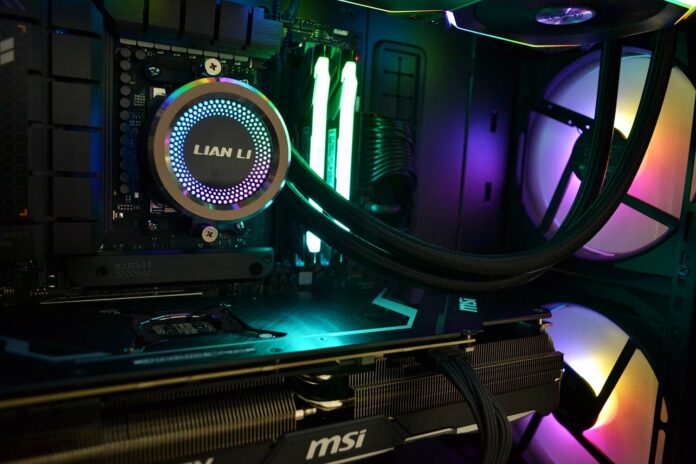It’s often a good pub chat to discuss what gaming PC you would build with a near-unlimited budget. AMD’s cache-heavy, gaming-optimised Ryzen 9 7950X3D is a fine starting point that many won’t disagree with, and the monstrous GeForce RTX 4090 has no GPU peer, making it an automatic choice without reservation. Tasked with a similar remit, Cyberpower sent in the £3,900 Ultra R79 X3D for review delectation.
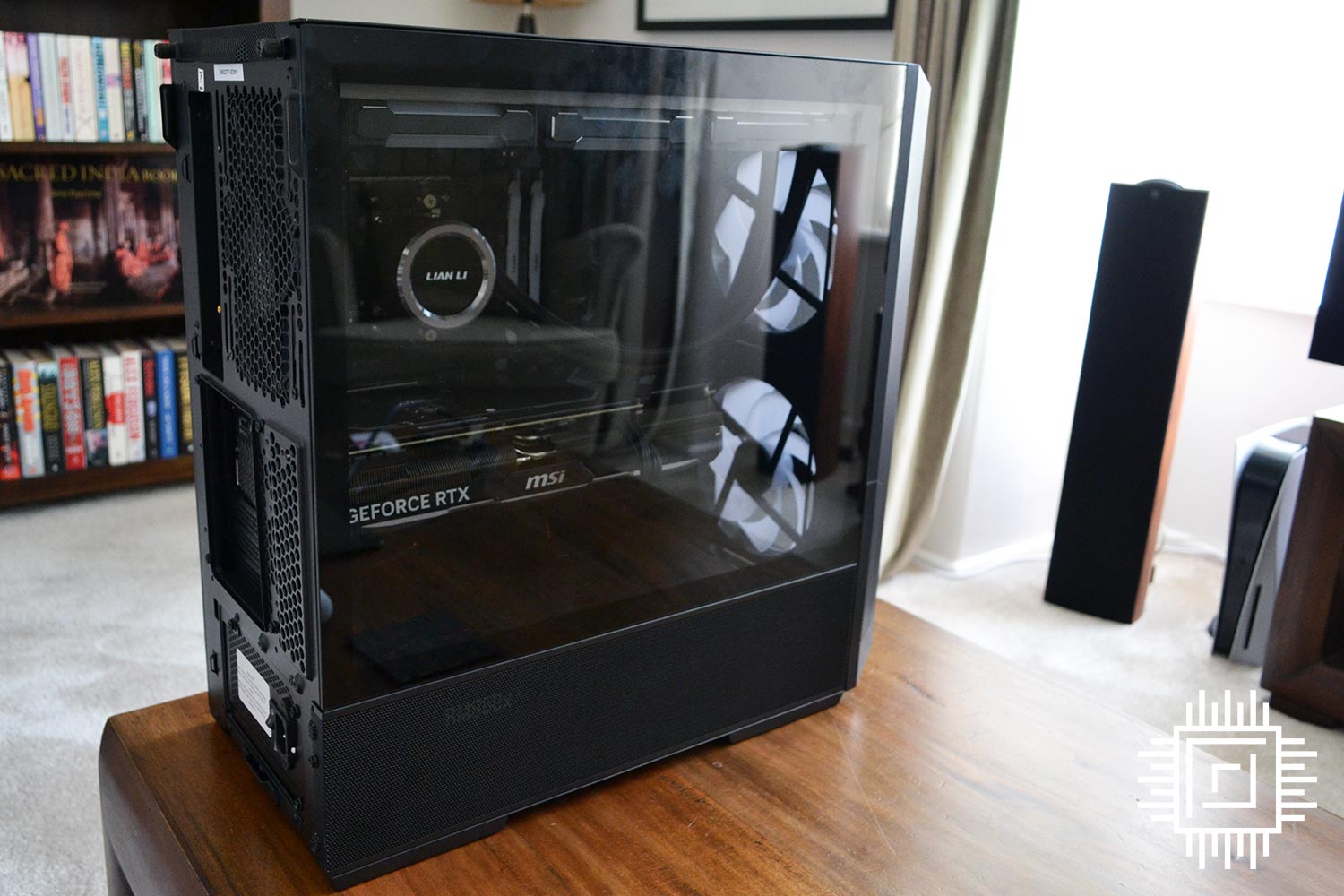

Cyberpower Ultra R79 X3D
£3,900
Pros
- Brilliant 4K gaming
- Priced same as DIY
- Impressive warranty
- Content creator’s dream
Cons
- No GPU RGB
- 1kW PSU would be nice
Club386 may earn an affiliate commission when you purchase products through links on our site.
How we test and review products.
Doubled-boxed and with expanding foam inserts keeping everything secure, the PC’s backed by the Gold five-year warranty that includes two years collect and return, two years parts, and labour for the length of cover. That’s good going and necessary for a premium rig.
Specification
Wrapped inside a mid-sized Lian Li Lancool 216 which goes big on RGB and airflow, first impressions are positive when peering into the window that ably showcases the capable hardware. Bear in mind the hinged panel picks up fingerprints with aplomb, so handle with kid gloves if wanting to keep a pristine finish.
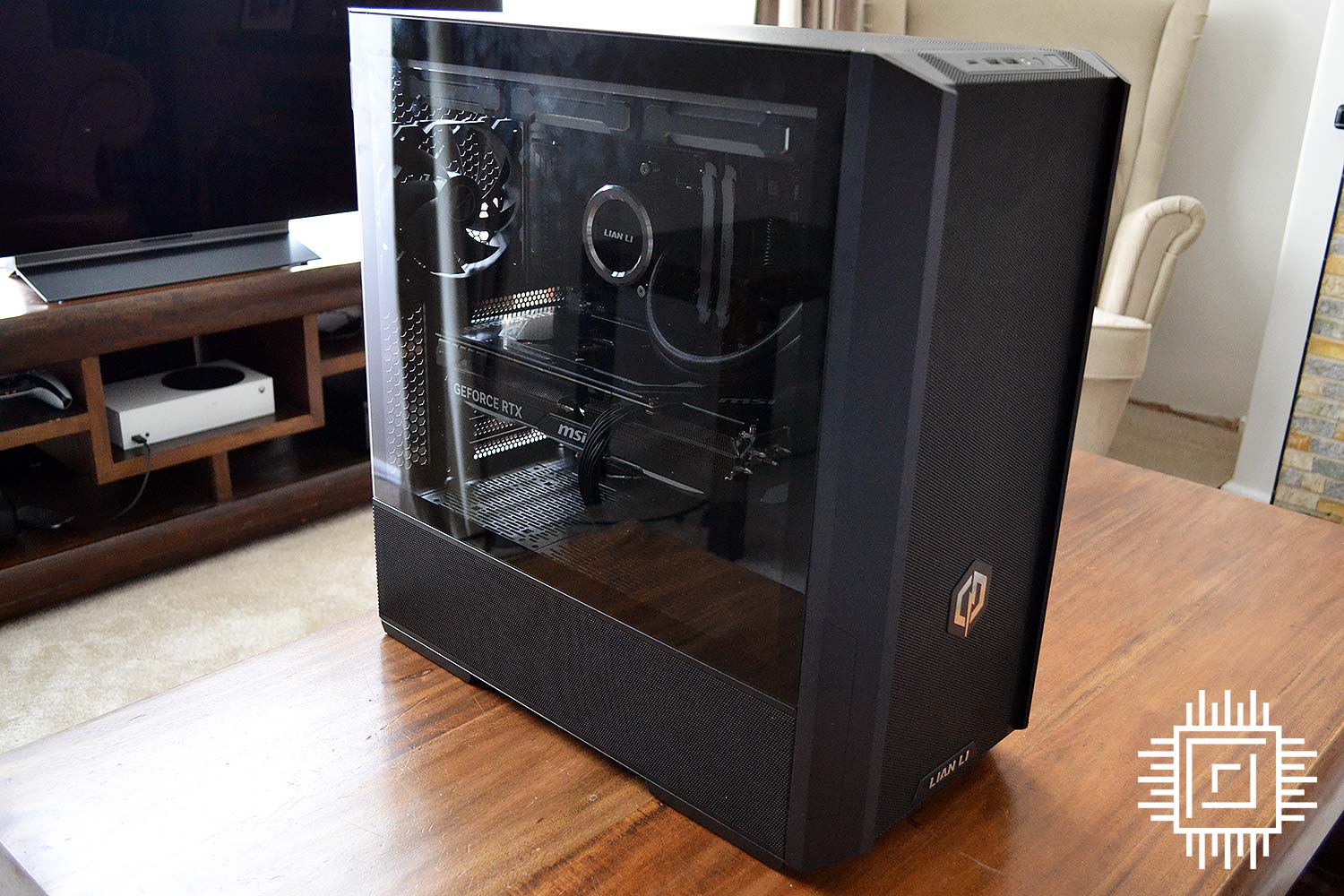
Cyberpower houses front I/O, comprising dual Type-A USB 3.0 and a solitary Type-C, at the top, though for users placing the system on a desk, the I/O can be moved to bottom-left. It all looks rather unassuming when switched off, but matters change abruptly, for the better, when switched on.
High-impact RGB immediately grabs attention, and two 160mm spinners provide plenty of intake potential pushing across the mighty RTX 4090 graphics card and RAM/watercooling section. The mesh-everywhere design is great for airflow but results in the system being more vocal than we’d like when idling – you certainly notice its presence, visually and aurally, when sat atop the desk.
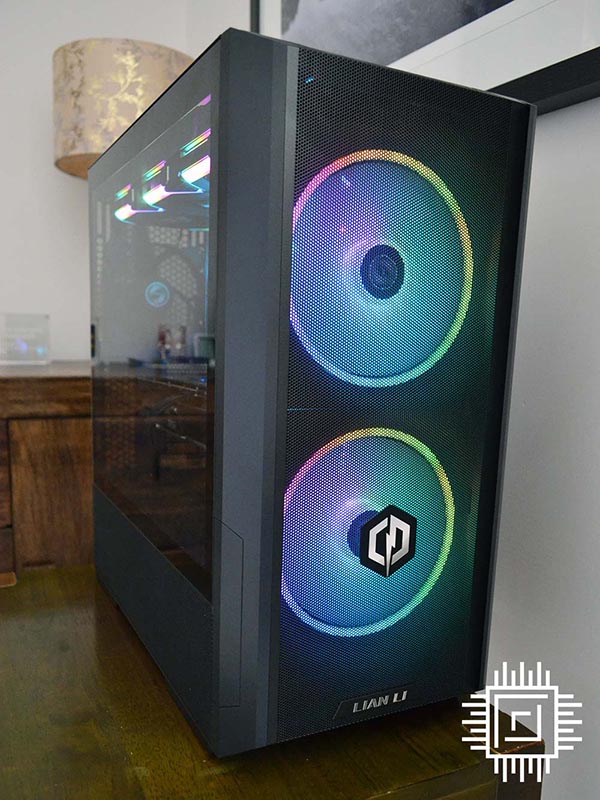
Getting inside reinforces the case’s versatility. Cyberpower opts for an MSI RTX 4090 Ventus 3X 24GB as the provider of pixels, and it’s hard to argue with the choice of GPU. Nevertheless, it is the entry-level model shorn of RGB present on, say, the Gaming X Trio or hulking build of Suprim. The understated look is not in keeping with the rest of the build, though Cyberpower tends to use it on high-performance systems. Given its considerable heft, the system adopts a useful securing mechanism that keeps everything locked in place.
Sheer size enables easy fitment of the 360mm Lian Li Galahad AIO, whose tubes spool their way on top of a stock-clocked Ryzen 9 7950X3D chip. Given its modest power budget of 120W TDP, there’s potential for a near-silent build.
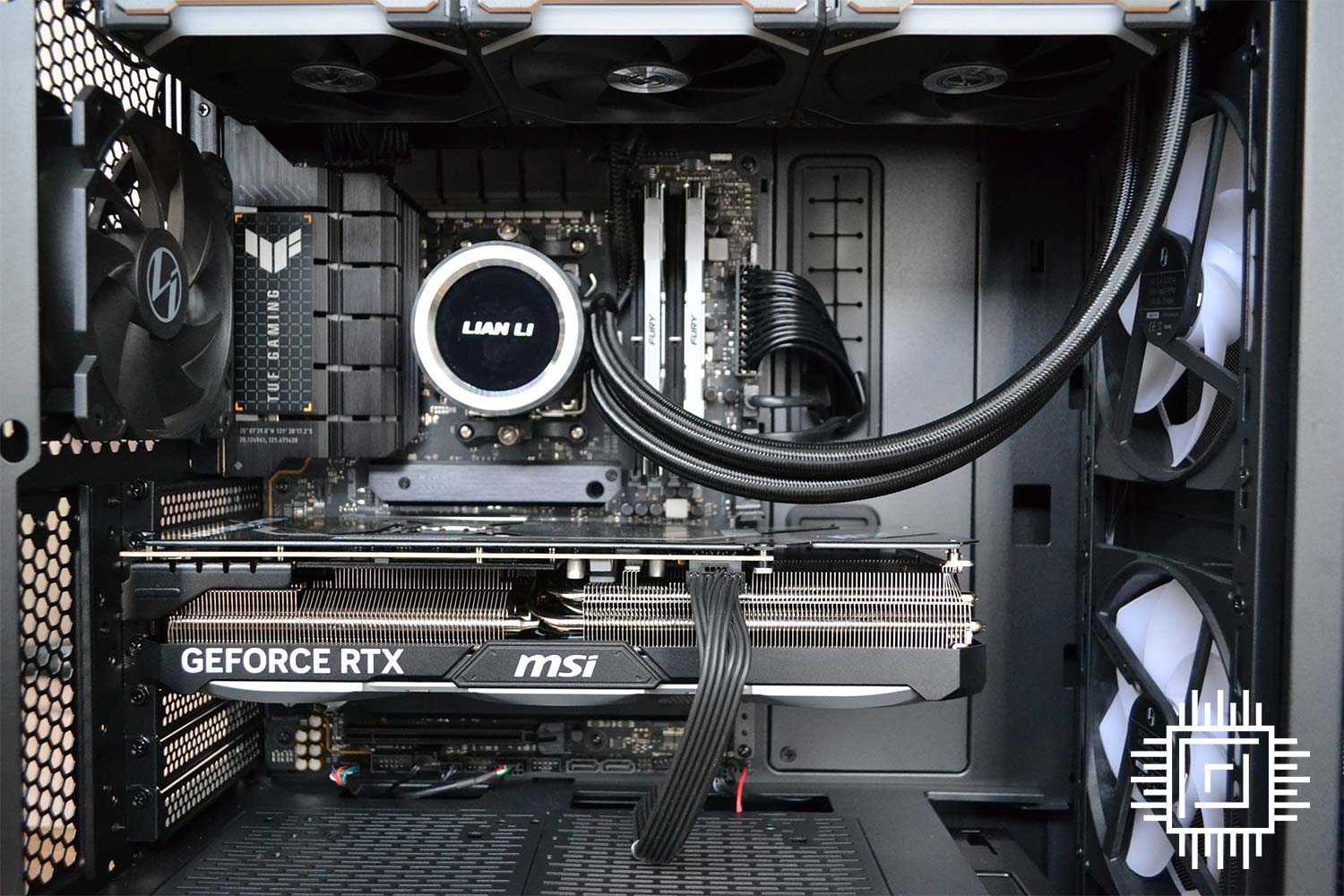
It looks good, too, blazing out attractive RGB from the pumphead and a trio of 120mm fans. We also appreciate the industrial look of the underlying Asus X670-E TUF Gaming motherboard and 32GB Kingston DDR5 RGB run at a decent 6,000MT/s.
Given the premium nature, a 2TB Solidigm P44 Pro NVMe PCIe 4.0 SSD is a good choice, while the motherboard features a further three slots for increased capacity. Based on AMD’s latest platform, the top slot, occupied by the Solidigm, is capable of PCIe 5.0 speeds, should you feel the need to upgrade in future.
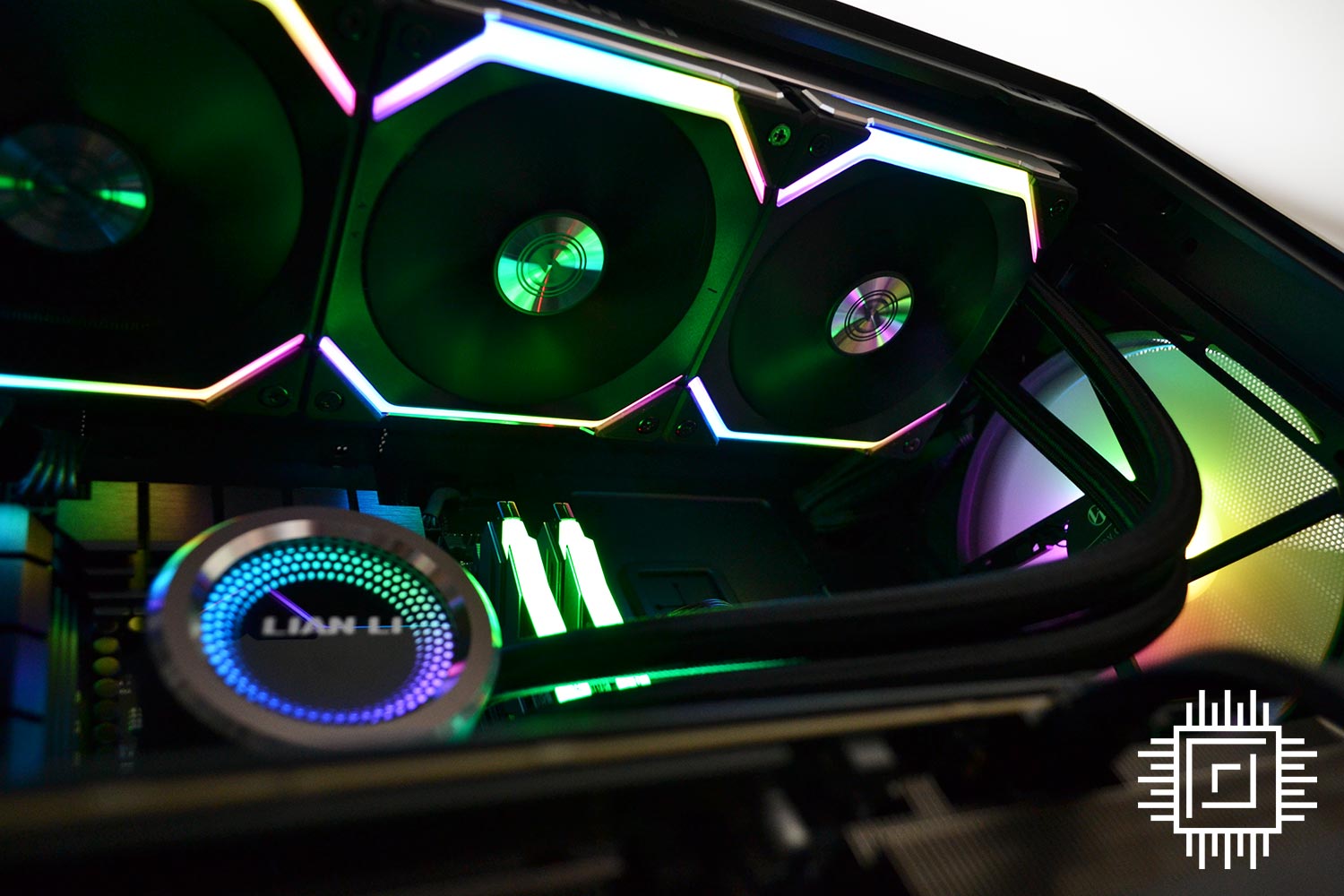
Cyberpower sensibly opts for the slightly dearer Wi-Fi 6E model, but most gamers, we imagine, will use the 2.5G Realtek Ethernet for rock-solid stability. Rear I/O also includes a further 10 USB – of which five are 5Gbps (Type-A), four 10Gbps (3x Type-A, 1x Type-C) and, pleasing to yours truly, a Type-C 20Gbps. Thunderbolt is available via an onboard header.
Powering the ensemble is an 850W Corsair RMx Shift supply – you know, the one with side-mounted connectors for a cleaner build – which carries the necessary 16-pin PCIe 5.0 connector for a one-cable conduit to the graphics card. Do know the capacity is the absolute minimum mandated by Nvidia when running RTX 4090. Perhaps a larger-wattage model would make more sense.
Back-of-the-envelope calculations suggest going down the self-build route would attract a £3,842 fee for components and Windows 11, which means there’s intrinsic merit in opting for a fully-built machine from a reputable system builder.
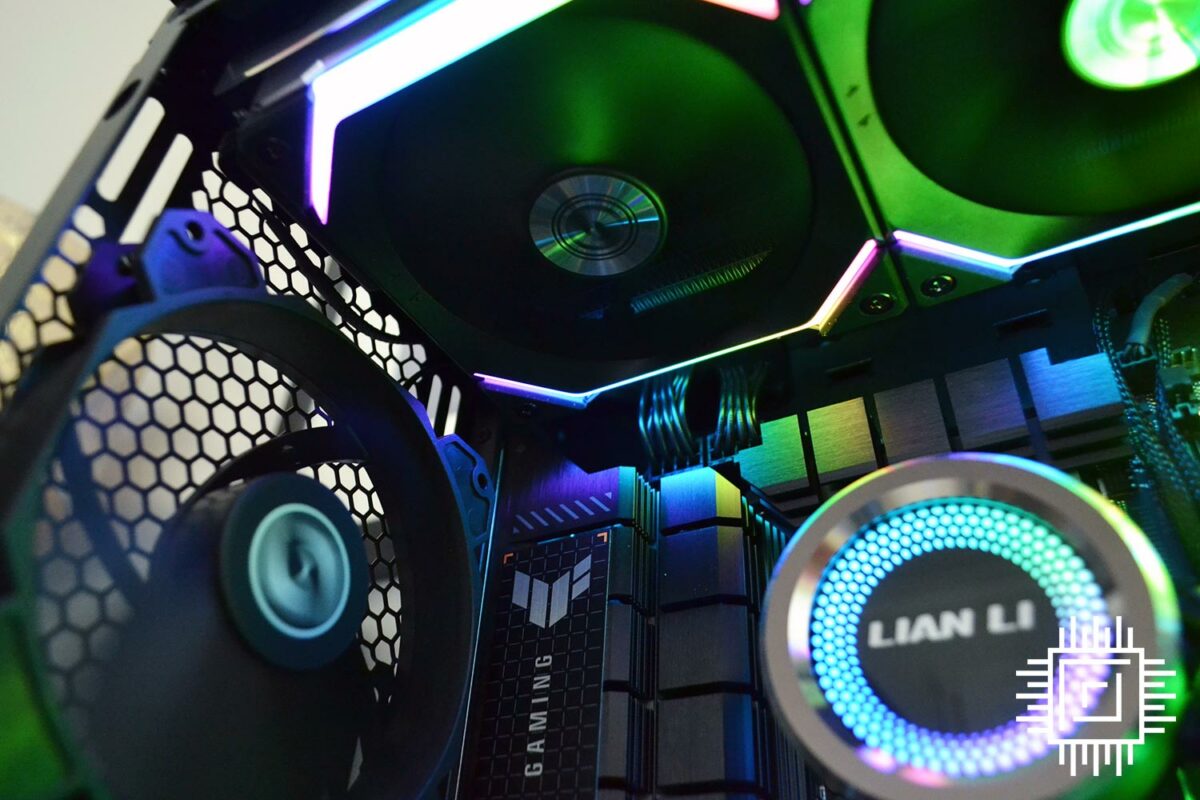
Performance
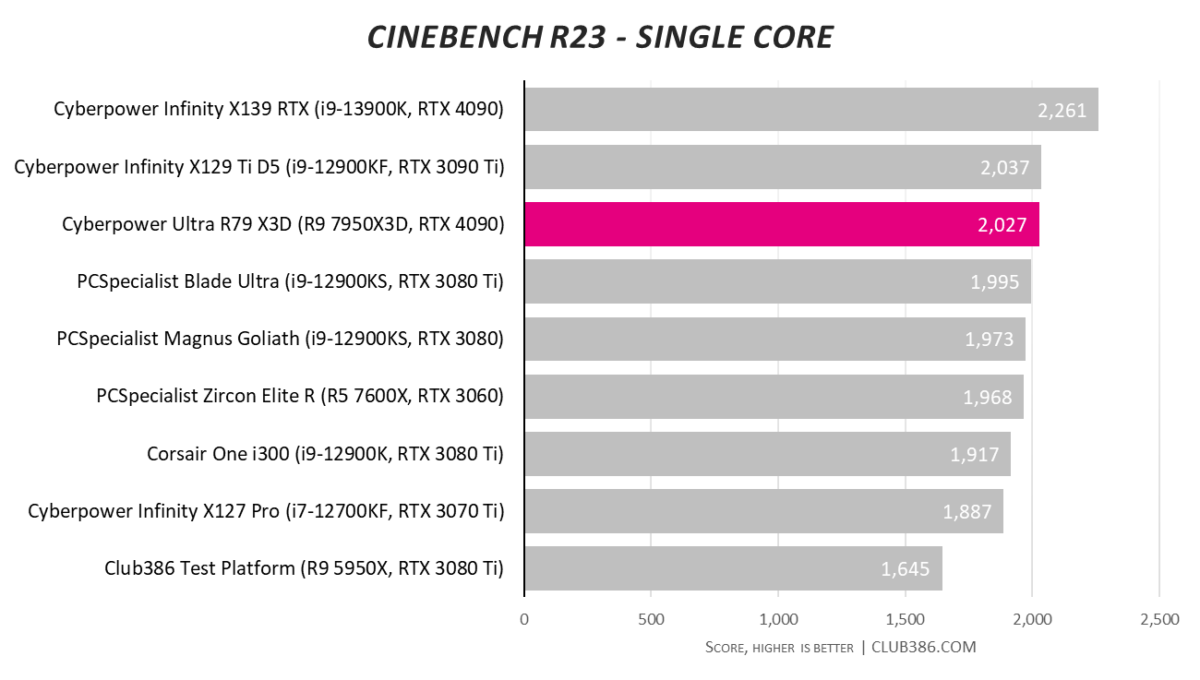
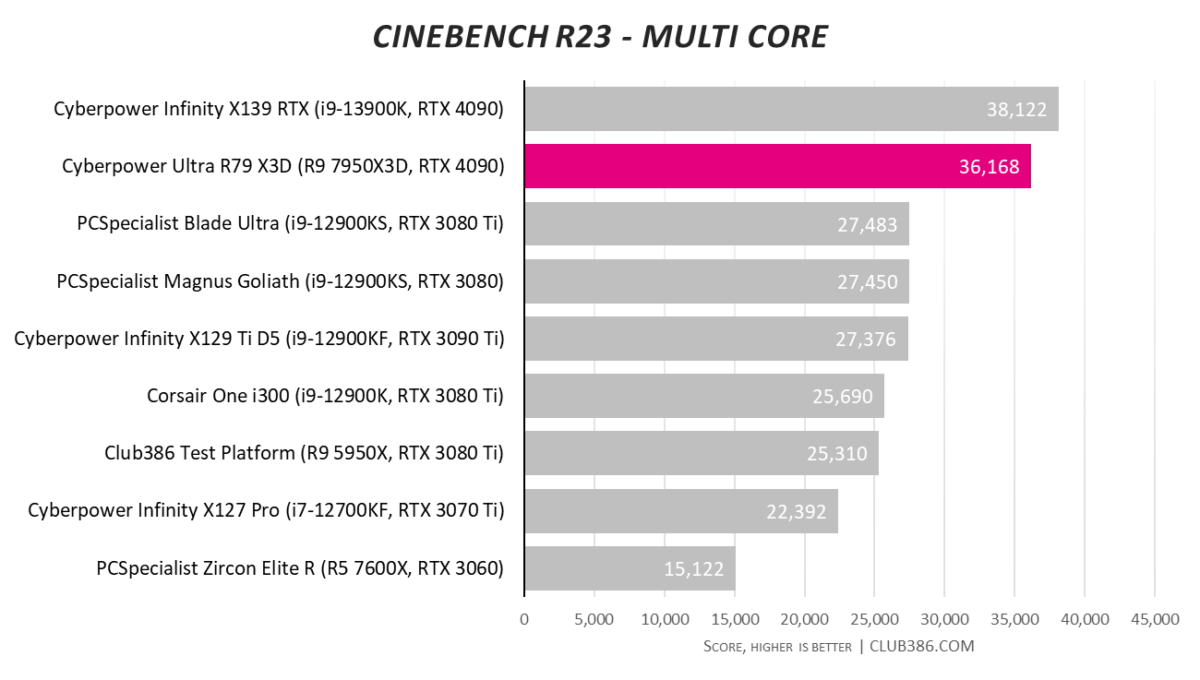
The first Ryzen 9 7000 Series chip in the graphs doesn’t disappoint. Primed for gaming above all else thanks to elevated cache levels, Zen 4 has more than decent chops at 120W TDP. Ultra R79 X3D will slice through everyday tasks with consummate ease.
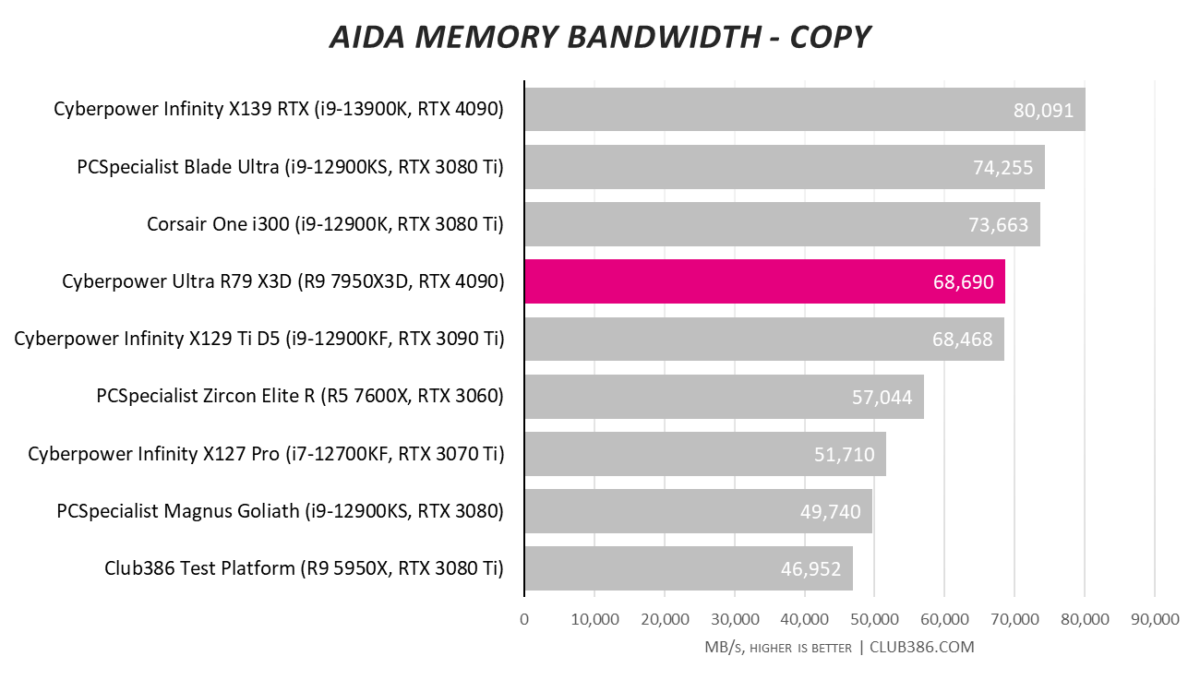
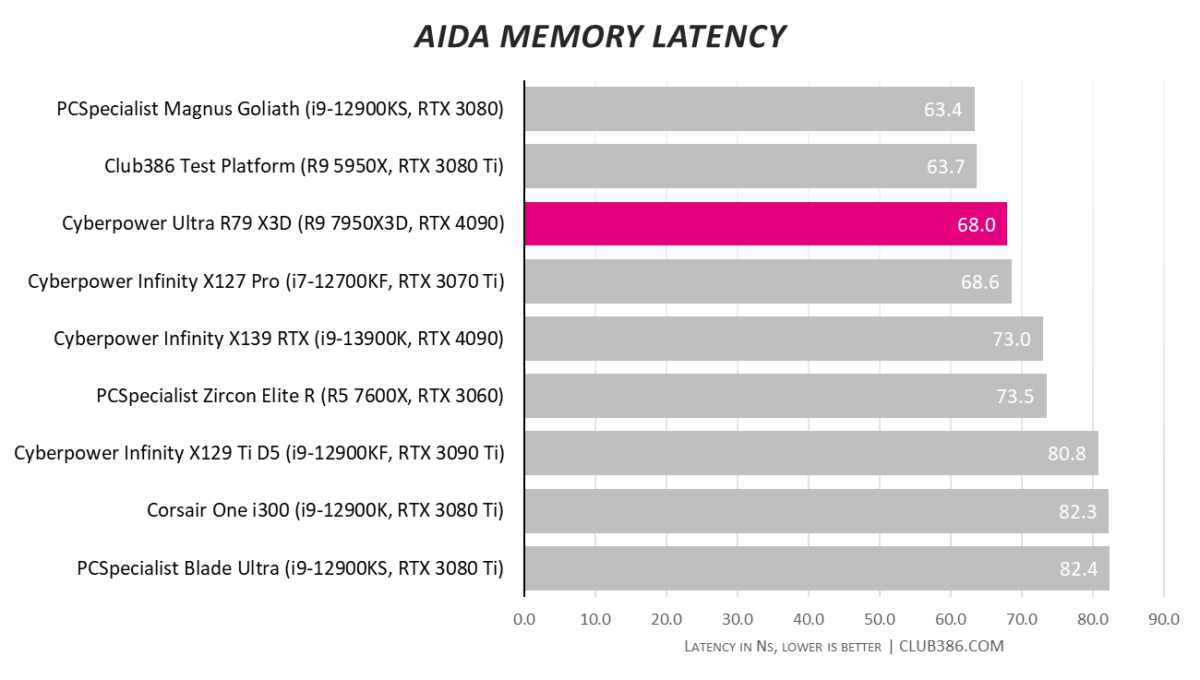
Cyberpower offers a modicum of extra oomph by disregarding the DDR5-5200 speed offered by AMD and running the Kingston Fury at DDR5-6000 instead. The best results yet from an AMD system, though Intel retains the upper hand with Core.
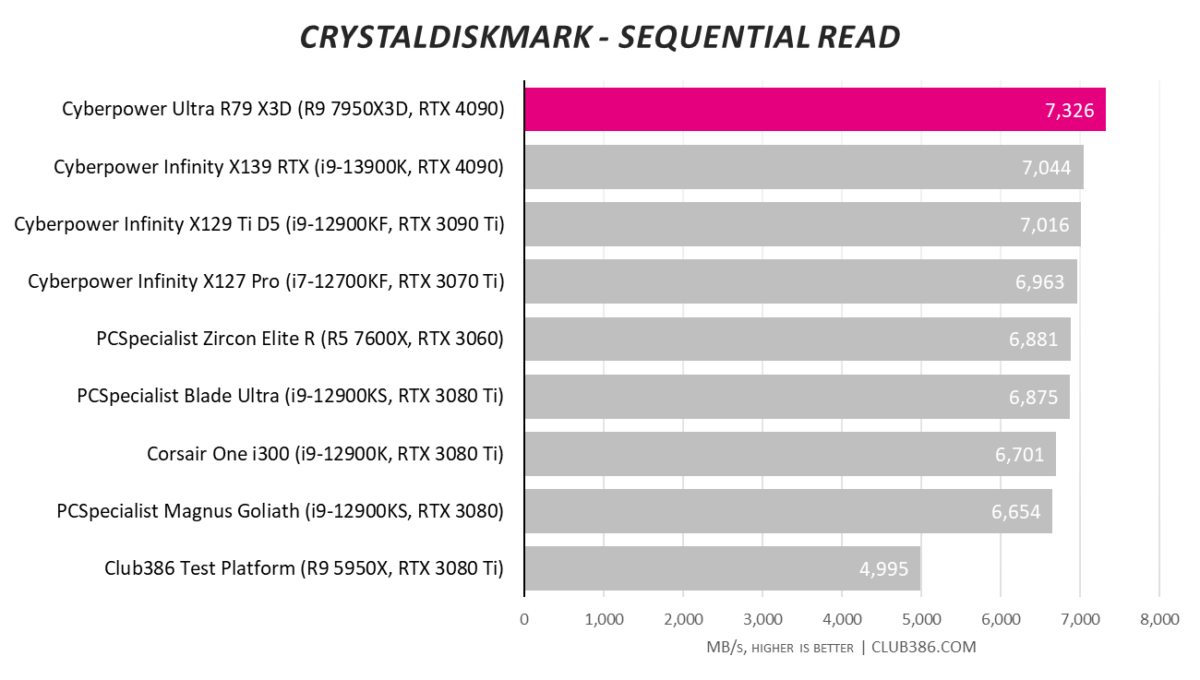
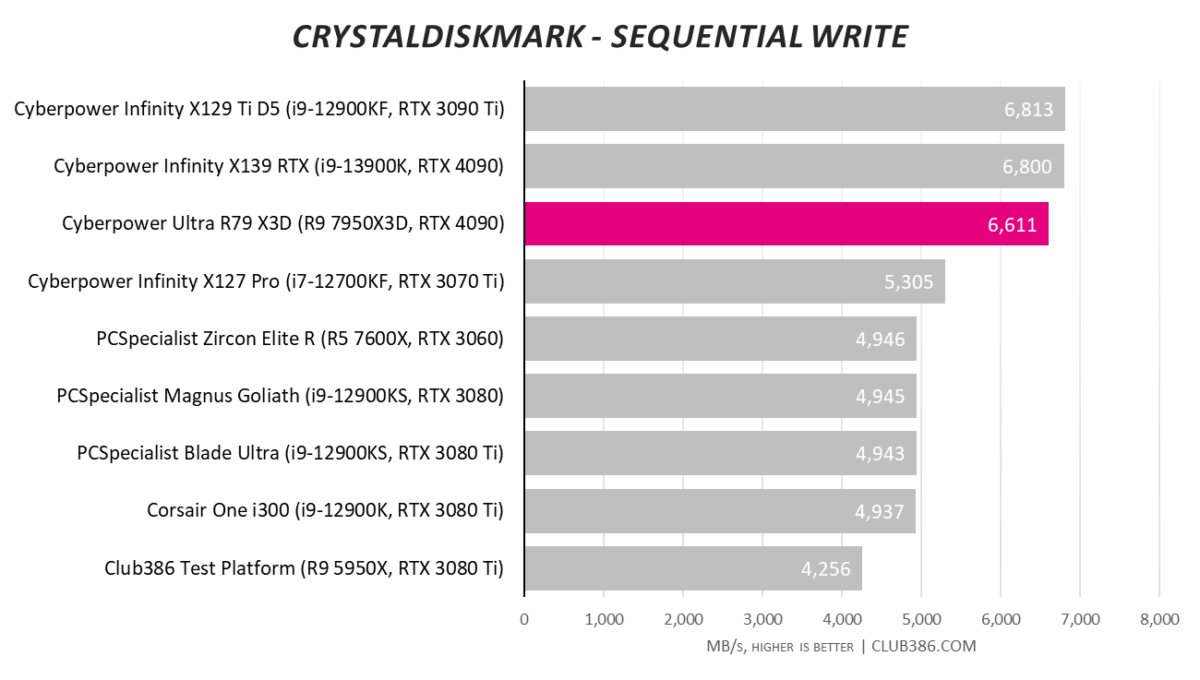
We had wondered where the Solidigm P44 Pro SSD would sit in the pecking order. It’s a first-class citizen, topping the sequential chart and high up on writes. The manufacturer is no fly-by-night operator, of course, as the company is born from SK hynix acquiring Intel NAND’s business for $9bn in 2021.
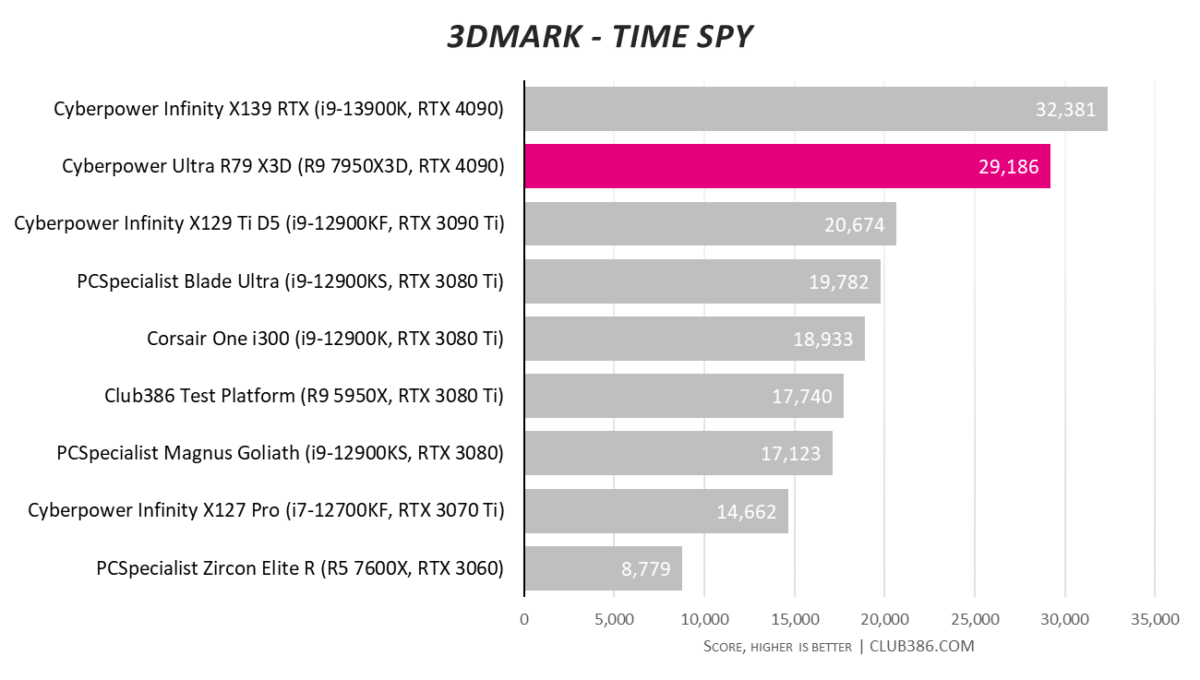
Here is where Ryzen 9 7950X3D’s lopsided dual-CCD design may hurt performance a touch. The review system is equipped with exactly the same card as present within Infinity X139 RTX, but performance is about 10 per cent lower in the first gaming test.
Gaming
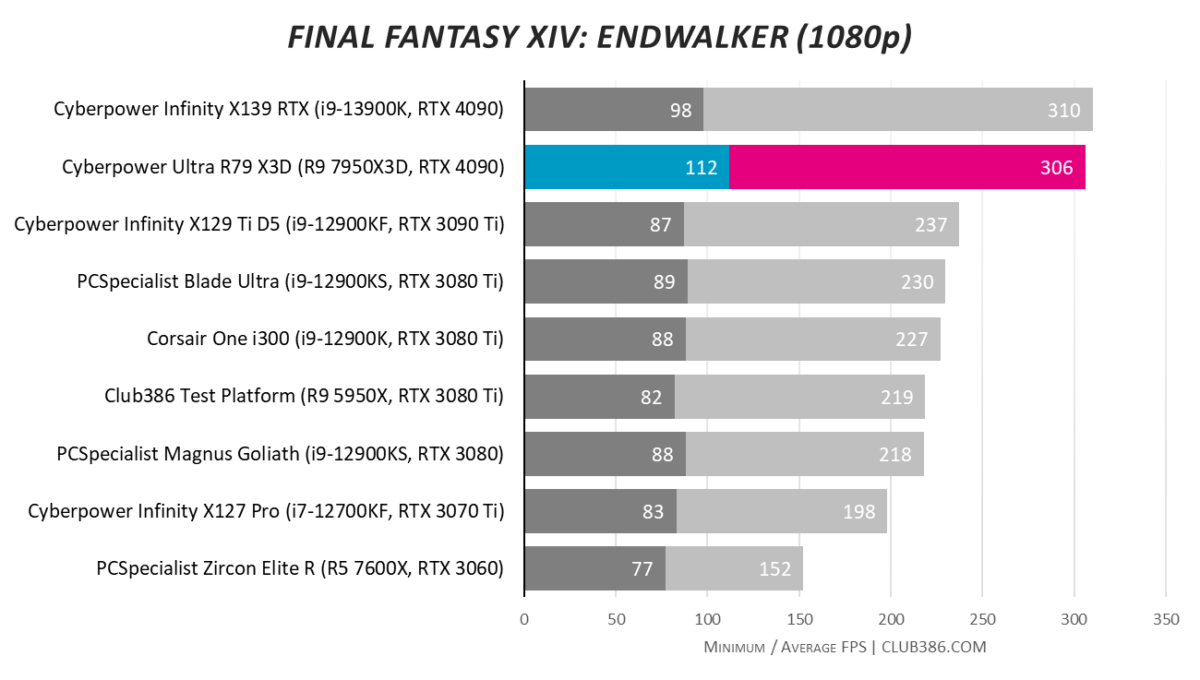
Real-world gaming is where it’s at. The Ryzen 9 7950X3D does rather well in Final Fantasy, and we especially like the class-leading minimum figure.
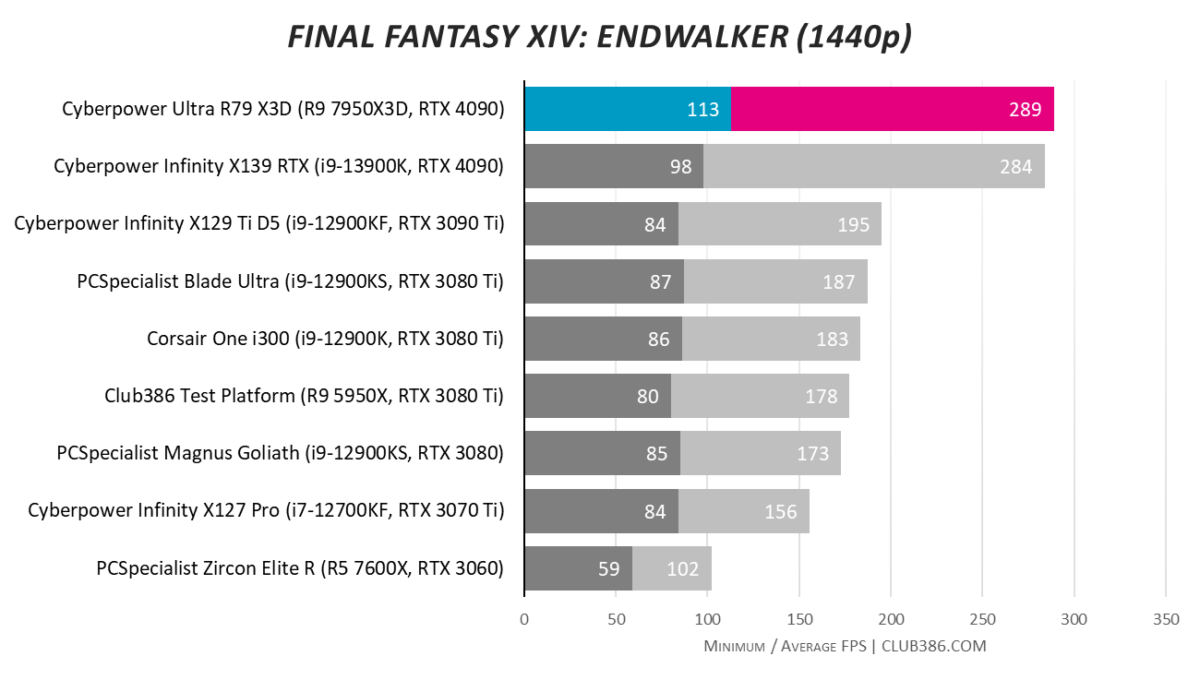
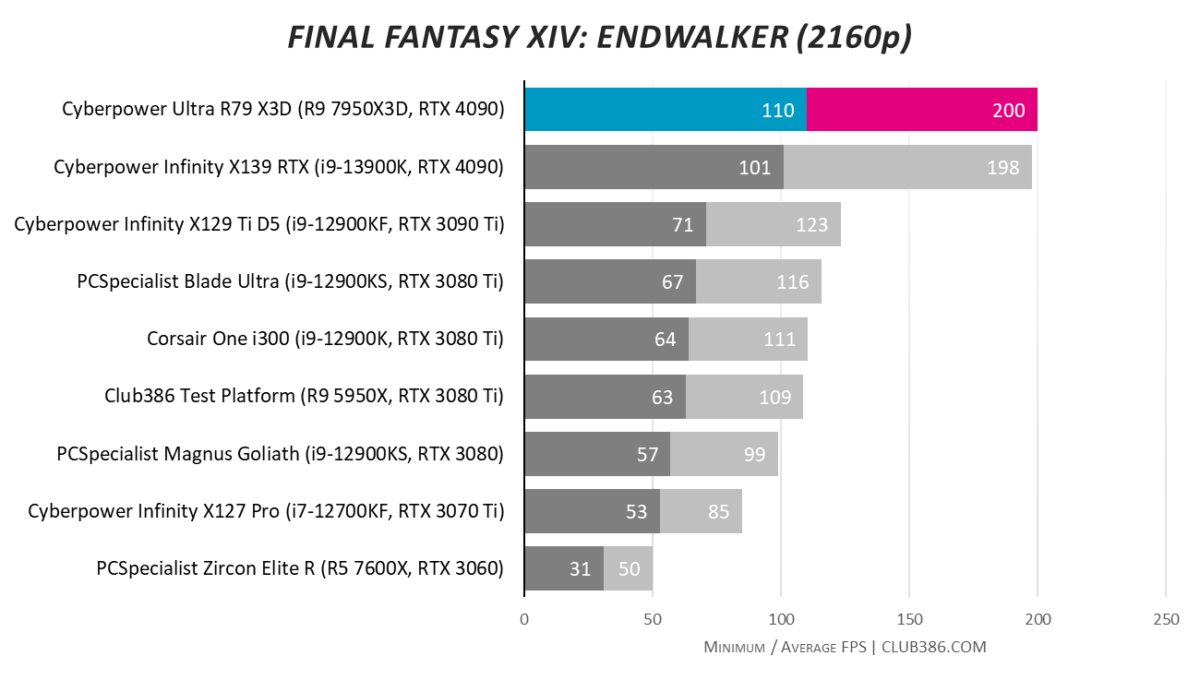
Fantastic performance from the RTX 4090 duo. Nothing else is in the reckoning.
| Game | FPS @ 1080p | FPS @ 1440p | FPS @ 2160p |
|---|---|---|---|
| Assassin’s Creed Valhalla (Ultra High Quality) | 215 | 183 | 119 |
| Cyberpunk 2077 (Ray Tracing: Ultra, DLSS Off) | 121 | 84 | 43 |
| Far Cry 6 (Ultra Quality, HD Textures and DXR On) | 129 | 120 | 110 |
| Tom Clancy’s Rainbow Six Extraction (Ultra Quality, DLSS Off) | 398 | 348 | 203 |
Further gaming examination is undertaken by evaluating performance in four recent, high-quality titles. Cyberpower’s system bulldozes through everything but Cyberpunk 2077, but even that taxing game can be brought to heel with the use of framerate-boosting DLSS 3 technology. 4K120 is very realistic.
Vitals
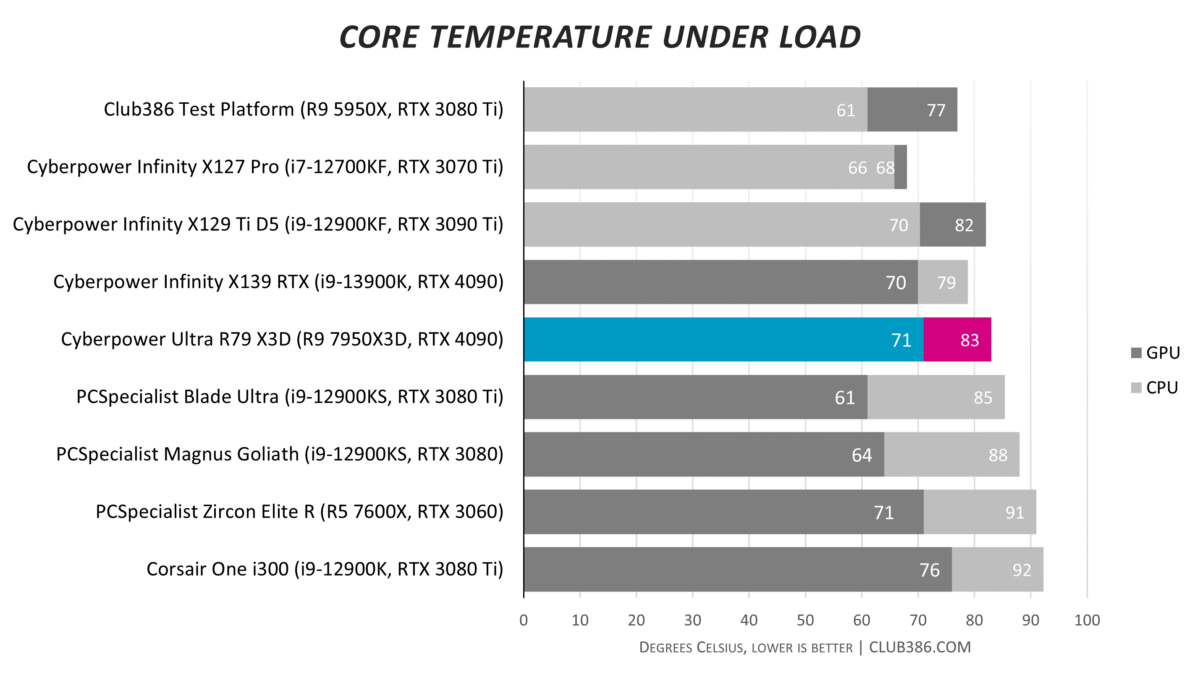
Arranged by maximum CPU temperature, Galahad does a good enough job in keeping Ryzen 9 7950X3D at acceptable temperatures. MSI does even better with the massive cooling present for RTX 4090, where the Ventus card barely nudges past 70°C.
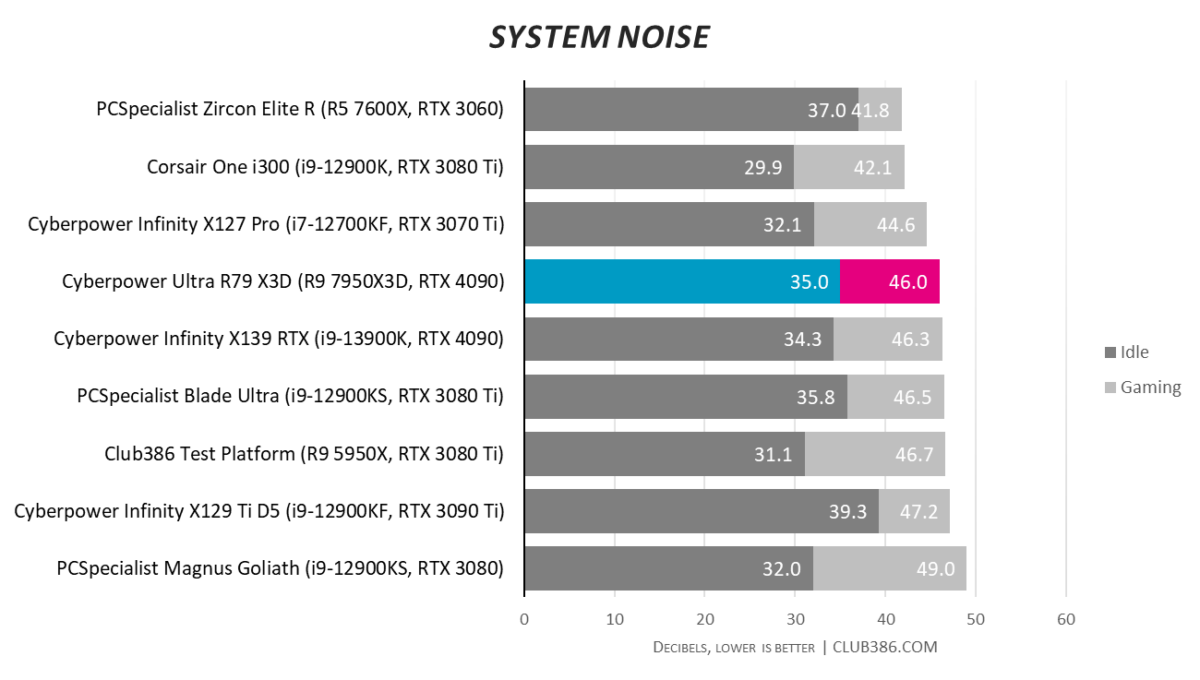
Having a total of 10 fans in Ultra R79 X3D inevitably leads to some noise at rest. Nevertheless, with the trio from the GPU and single spinner on the PSU turning off at low loads, the system could be quieter. We can see why Cyberpower errs on the side of caution – more airflow ought to mean fewer returns – but a quick trip to firmware drops the idle reading from 35dB to 32dB. There we go.
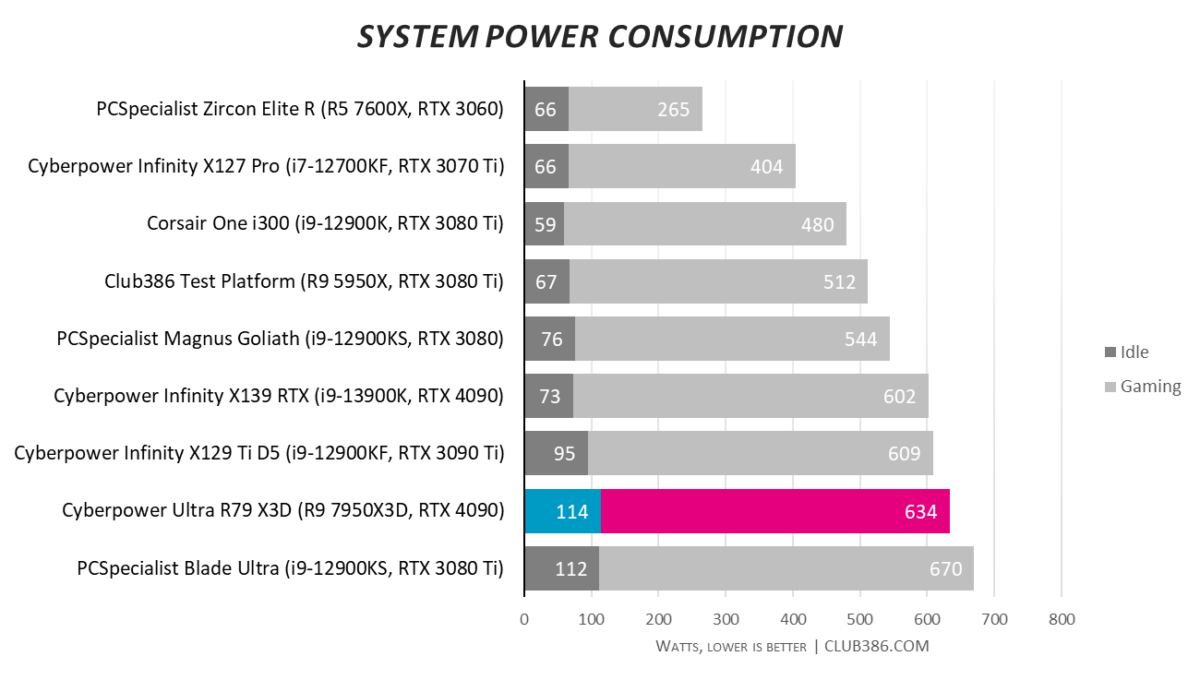
It’s hard to get Ryzen 9 7950X3D/X670E to idle properly. Task Manager shows the system is sporadically kicking into a higher gear even when browsing. The same is true of our test system harnessing the same CPU.
Conclusion
We’re heartened to see Cyberpower adopting the latest AMD CPU technology from the off. Ryzen 9 7950X3D is an excellent general-purpose CPU and offers extra gaming oomph over non-X3D Ryzens thanks to innovative 3D V-Cache smarts. Mating the potent chip to an RTX 4090 is a match made in high-framerate heaven.
Though it may seem expensive on first glance, the £3,900 price tag is competitive when the considerable payload is taken into account. Sensibly supporting the two stellar, standout components with a well-regarded SSD and proven RAM operating at high frequencies, there’s not much we’d change. A more blingy graphics card would sit well with the overall light-infused theme – RTX 4090 Gaming X Trio and Suprim are offered as in-place upgrades for £79 and £119, respectively – and we’d stump up the extra paper for either.
A proven workhorse for the day and superlative gaming PC by night, the Cyberpower Ultra R79 X3D is pricey but powerful.
Verdict: A performance-packed system showcasing the best components of early 2023.


